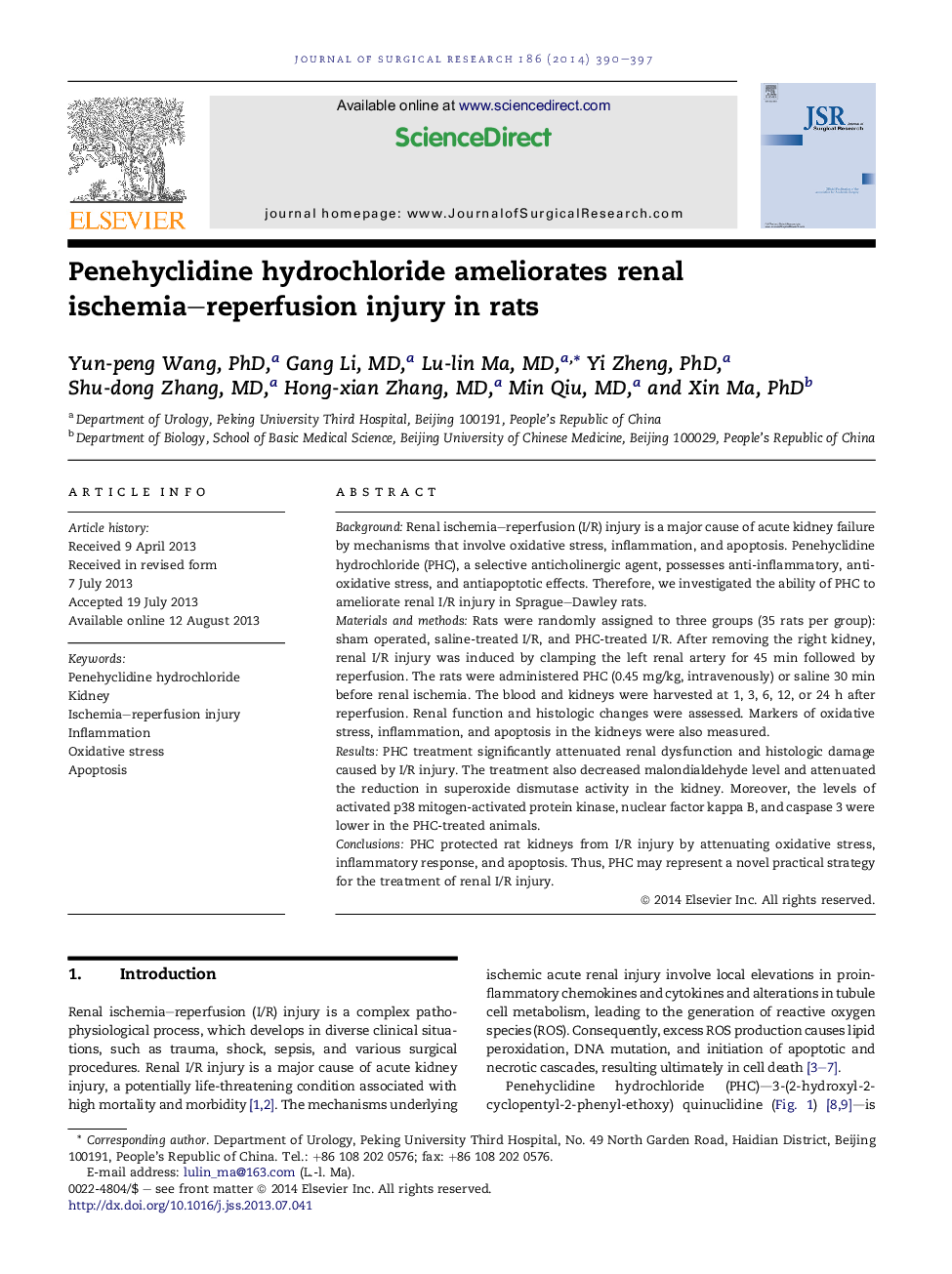| Article ID | Journal | Published Year | Pages | File Type |
|---|---|---|---|---|
| 6254226 | Journal of Surgical Research | 2014 | 8 Pages |
BackgroundRenal ischemia-reperfusion (I/R) injury is a major cause of acute kidney failure by mechanisms that involve oxidative stress, inflammation, and apoptosis. Penehyclidine hydrochloride (PHC), a selective anticholinergic agent, possesses anti-inflammatory, antioxidative stress, and antiapoptotic effects. Therefore, we investigated the ability of PHC to ameliorate renal I/R injury in Sprague-Dawley rats.Materials and methodsRats were randomly assigned to three groups (35 rats per group): sham operated, saline-treated I/R, and PHC-treated I/R. After removing the right kidney, renal I/R injury was induced by clamping the left renal artery for 45Â min followed by reperfusion. The rats were administered PHC (0.45Â mg/kg, intravenously) or saline 30Â min before renal ischemia. The blood and kidneys were harvested at 1, 3, 6, 12, or 24Â h after reperfusion. Renal function and histologic changes were assessed. Markers of oxidative stress, inflammation, and apoptosis in the kidneys were also measured.ResultsPHC treatment significantly attenuated renal dysfunction and histologic damage caused by I/R injury. The treatment also decreased malondialdehyde level and attenuated the reduction in superoxide dismutase activity in the kidney. Moreover, the levels of activated p38 mitogen-activated protein kinase, nuclear factor kappa B, and caspase 3 were lower in the PHC-treated animals.ConclusionsPHC protected rat kidneys from I/R injury by attenuating oxidative stress, inflammatory response, and apoptosis. Thus, PHC may represent a novel practical strategy for the treatment of renal I/R injury.
